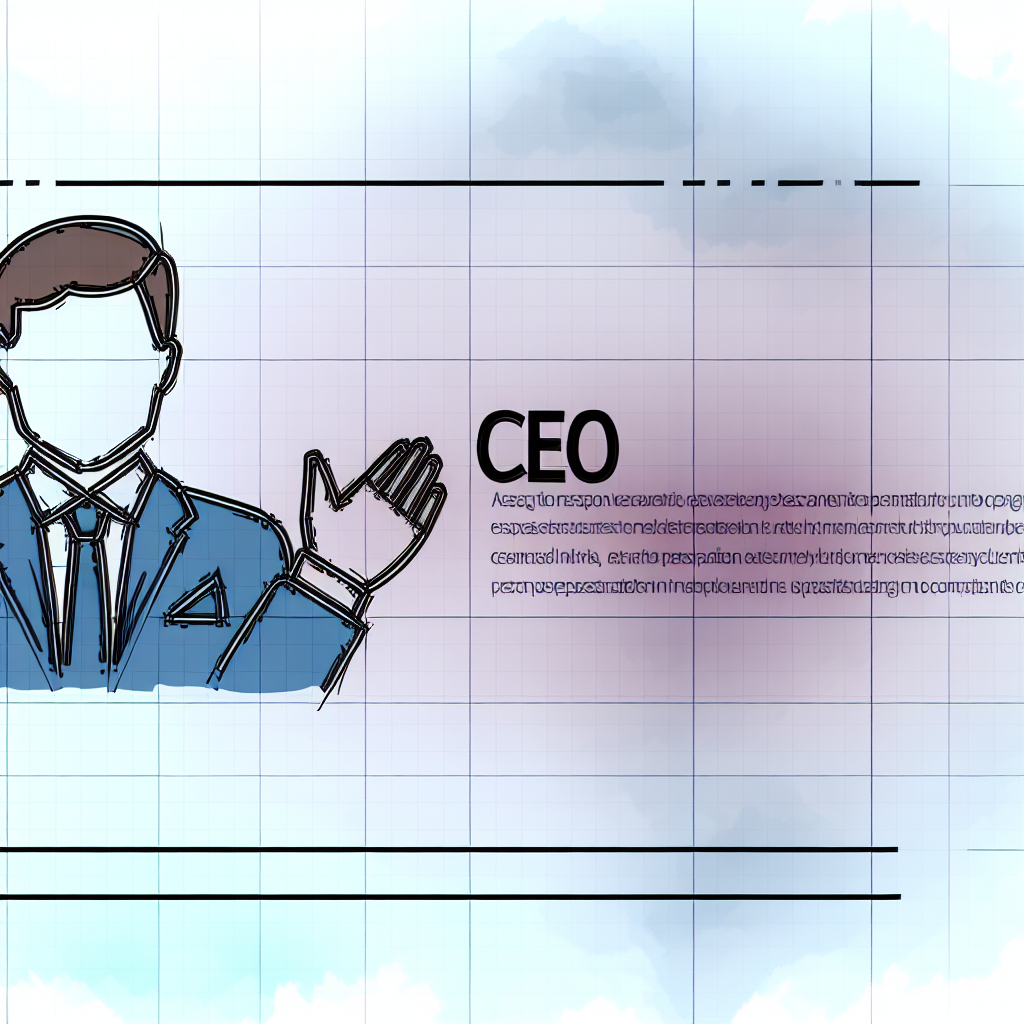
In the dynamic landscape of corporate governance, the age of a Chief Executive Officer (CEO) has become an increasingly significant determinant of a company’s leadership effectiveness, strategy formulation, and culture. As Human Resource professionals, understanding the implications of CEO age becomes paramount in shaping recruitment policies, succession planning, and overall corporate performance.
Significance of CEO Age
CEO age can profoundly impact various facets of corporate leadership. By grasping the nuances of leadership qualities across different age groups, HR professionals can foster more informed hiring practices and talent management strategies.
Leadership Qualities
- Technical Skills: Younger CEOs often bring a fresh perspective, typically possessing advanced technical skills attuned to modern technologies. Their recent entry into the workforce allows them to leverage current methodologies for agile, forward-thinking strategies. This is particularly valuable in industries that thrive on innovation and rapid change—an observation highlighted by Revelio Labs ([source](https://www.reveliolabs.com)).
- Soft Skills: In contrast, older CEOs frequently exhibit strong soft skills, including management acumen and strategic thinking. These skills are essential for effectively guiding teams and managing organisational change, providing stability and experience in navigating complex challenges ([source](https://www.fortune.com)).
Industry Needs
The age of CEOs can vary significantly across different industries. Young leaders tend to dominate fast-paced sectors such as technology, where adaptability and innovation are crucial. Conversely, older CEOs often excel in more traditional sectors like biotech and healthcare, where extensive industry knowledge is paramount ([source](https://www.kornferry.com)).
Statistics reveal that younger CEOs generally manage smaller companies, averaging 106 employees, while older CEOs usually lead larger firms. This disparity may reflect the opportunities available to younger leaders in agile environments that prioritise innovation and expeditious decision-making ([source](https://www.springer.com)).
Current Trends
Recent trends in CEO demographics reflect a shift in corporate leadership preferences. HR professionals should be aware of these changes when considering leadership talent.
Increasing Average Age
The average age of newly appointed CEOs has seen a substantial increase of three years since 2018, with the current average age sitting substantially higher. This trend indicates a corporate preference for older, more experienced leaders likely due to demands for stability in an ever-shifting business landscape ([source](https://www.fortune.com)).
Specifically, the average hiring age for CEOs in Fortune 500 and S&P 500 companies has surged dramatically from 46 to 55 years over the past two decades—a noteworthy trend that speaks volumes about evolving corporate strategies ([source](https://www.kornferry.com)).
Industry Variations
The average age for CEOs across industries stands at 58 years. Financial services see the oldest average CEOs at 60 years, whereas the technology sector has a younger average age of 55 years. Companies ranking in the Future 50, known for their long-term growth potential, have an average CEO age of 52, indicating a balance between age experience and youthful vitality ([source](https://www.springer.com)).
Key Benefits of Varied CEO Ages
The implications of CEO age extend to tangible advantages that can shape a company’s trajectory. Recognising these benefits enables HR professionals to tailor leadership selection processes effectively.
Experience and Wisdom
Older CEOs contribute vast experience and wisdom–qualities that are vital for steering companies through intricate environments. Their seasoned leadership fosters a tendency toward conservative, risk-averse decision-making, which can safeguard businesses during turbulent times ([source](https://www.kornferry.com)).
Research underscores that older CEOs are more inclined to adopt traditional management styles and implement less aggressive investment strategies, thereby enhancing predictable corporate performance ([source](https://www.springer.com)).
Technical Versatility
Conversely, younger CEOs typically excel in modern technologies and innovations, facilitating forward-thinking strategies that keep pace with rapid market transformations ([source](https://www.reveliolabs.com)).
Moreover, younger leaders often exhibit a readiness to take calculated risks, particularly concerning growth initiatives. This drive to establish their reputation and secure future financial rewards is particularly prominent in fast-paced sectors, presenting progressive opportunities for organisations focused on expansion ([source](https://www.fortune.com)).
Conclusion
The age of a CEO is a multifaceted element that plays a pivotal role in influencing corporate performance and strategy. With an observable trend favouring older leaders who deliver stability and extensive knowledge, it is equally essential to recognise the technical acumen and innovative prowess offered by younger executives. As HR professionals, a comprehensive understanding of these dynamics is imperative to fostering leadership that aligns with organisational objectives.
Ultimately, weighing the distinctive advantages that CEOs of different ages bring to the table will be instrumental in shaping future leadership paradigms. Creating an environment that values both experience and innovation will likely yield the most advantageous outcomes for companies navigating an uncertain business future.
References:
- “Too Old To Lead? CEO Age Is on the Rise” by Revelio Labs.
- “Why companies need more age diversity in their leadership ranks” by Fortune.
- “The influence of CEO age, gender, and education level on corporate risk-taking” by Pim Cornelis Ventevogel.
- “Age and tenure in the C-Suite” by Korn Ferry.
- “CEO age, shareholder monitoring, and the organic growth of firms” by Springer.
Vadim Kouznetsov is a distinguished entrepreneur and the visionary founder and CEO of JobXDubai.com, the UAE’s rapidly expanding job board. Renowned for his expertise in bridging the gap between job seekers and employment opportunities, Vadim has become a leading authority in the recruitment and job market of Dubai.
